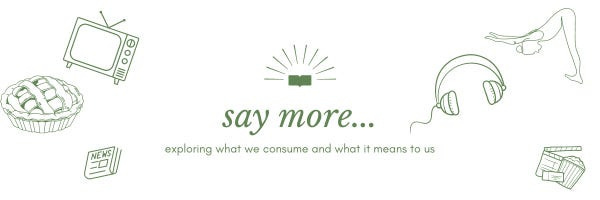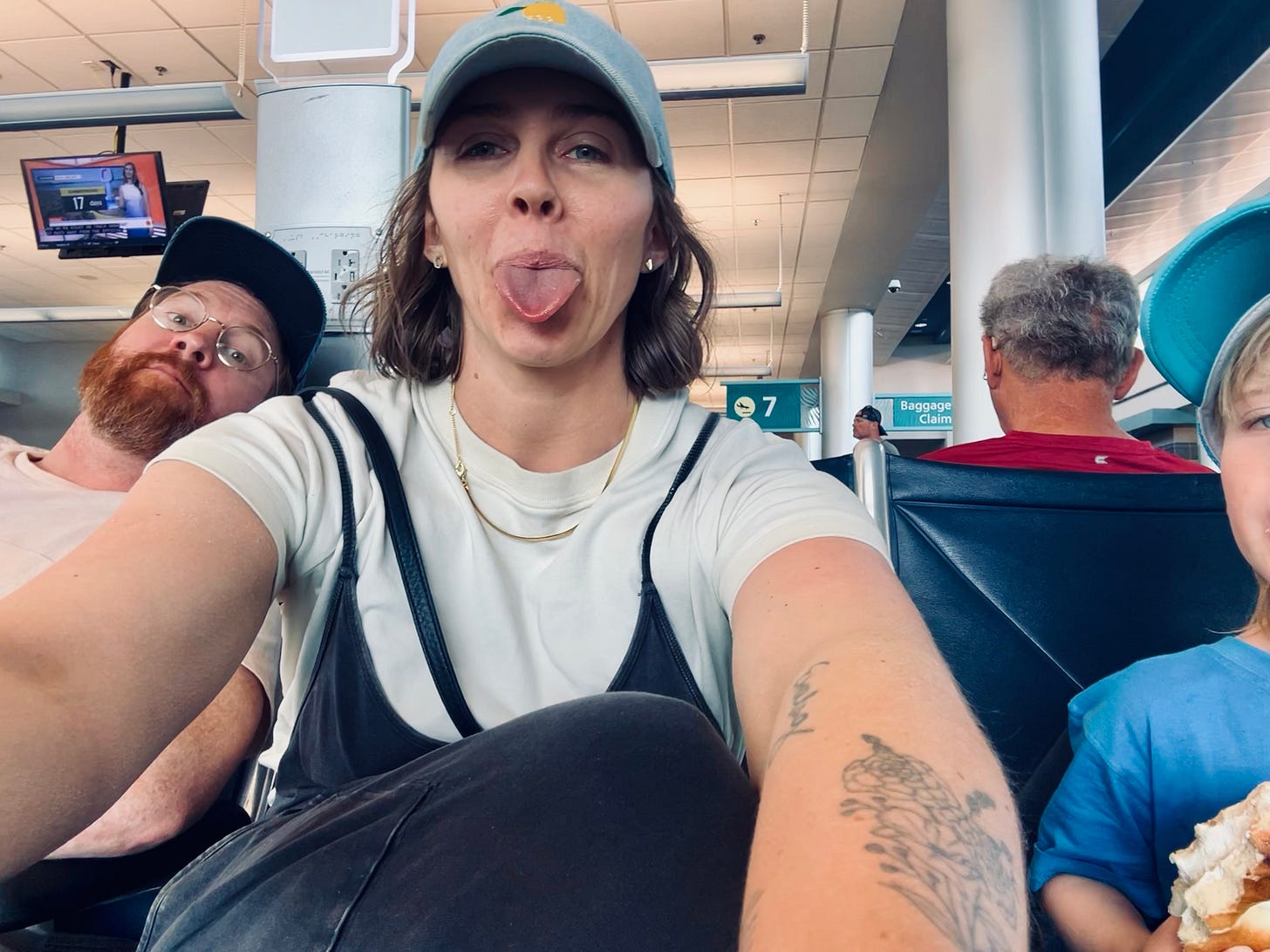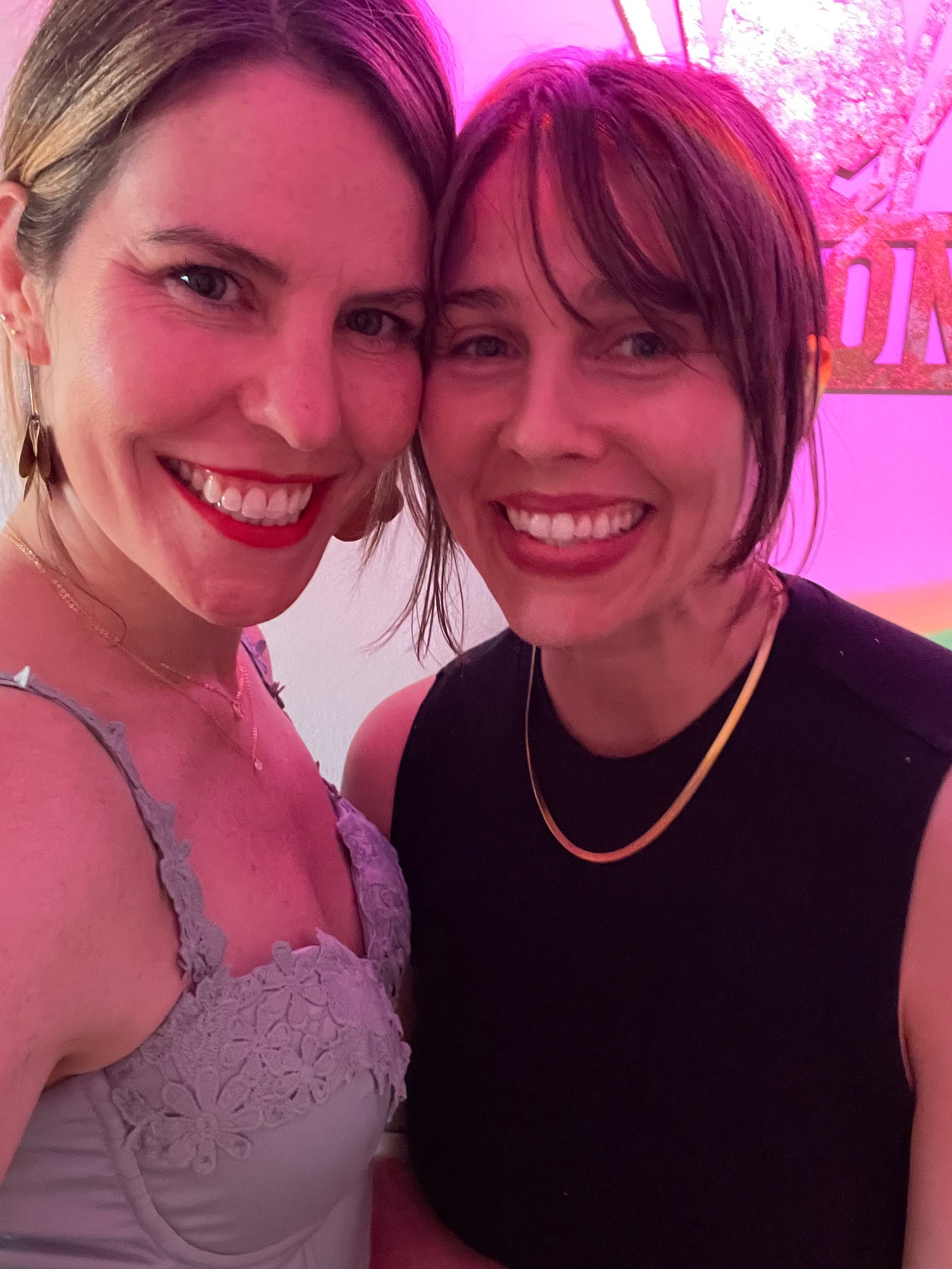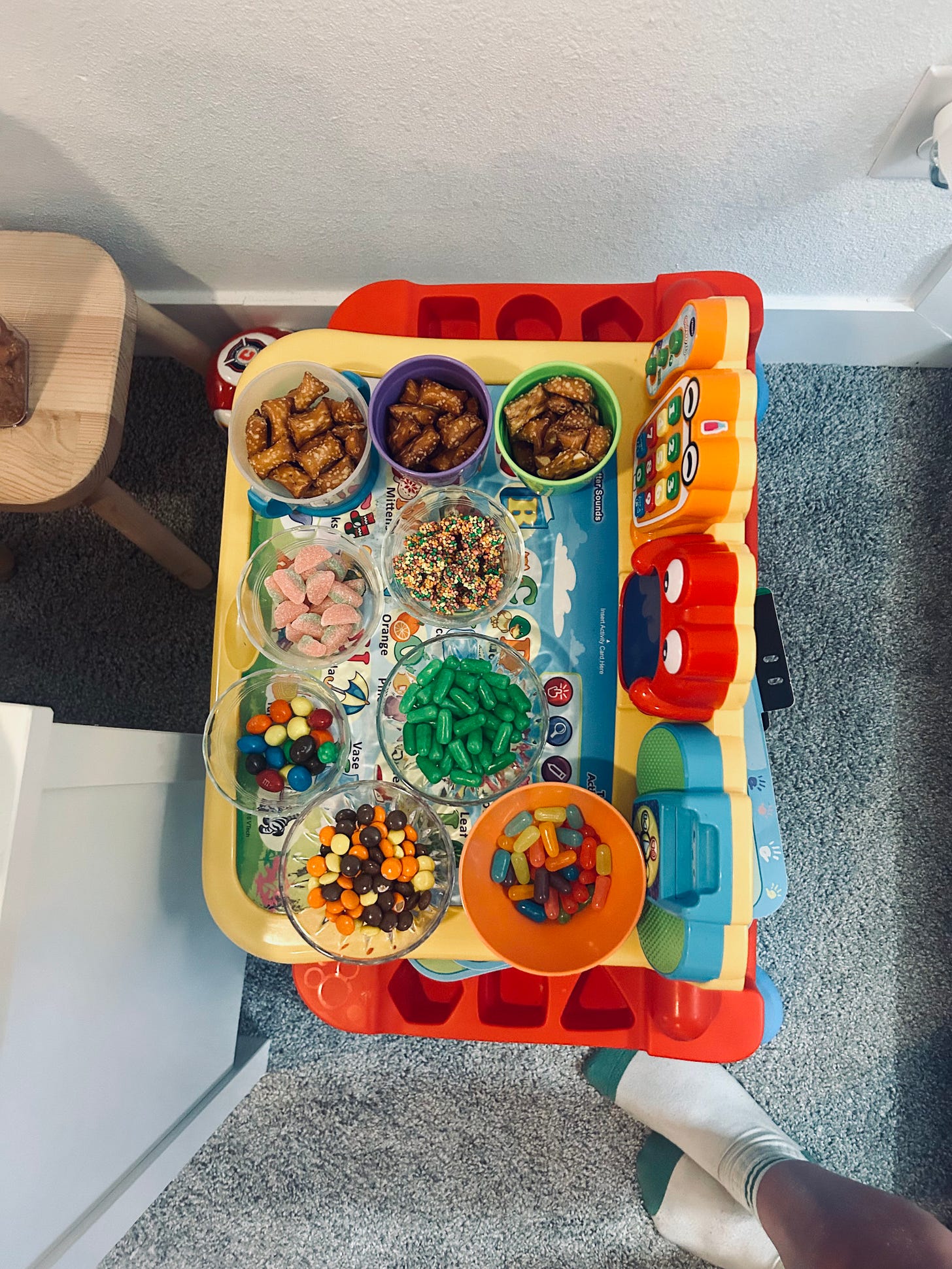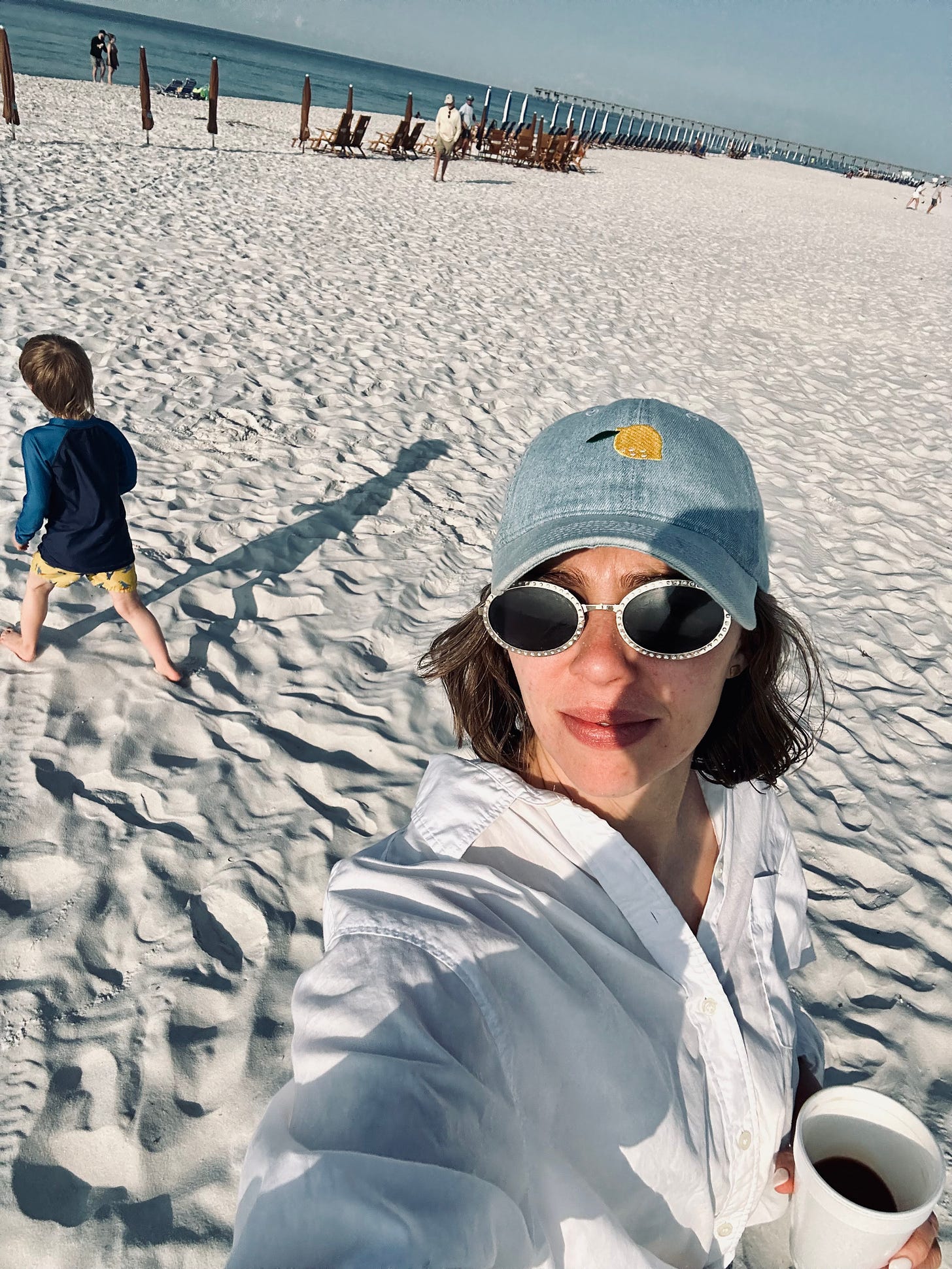say more: June 2025
the power of "I don't know," needing romance (feeling the misguided notion of safety in the paywall this month) and a bunch of surprising sources of inspiration, joy and connection
In therapy, clients will often recount something to me and then wait. Waiting for me to have a set reaction. But often, they haven’t said what this something meant to them, how they experienced it, what they felt. Which leaves me responding, “Say more…”
This is a monthly series where I explore what I engaged with—TV, books, movies, food, movement, people, lessons—and what it made me feel.
One thing before we jump in, I show up very much as myself here. Myself first, and all my other labels are secondary. If a therapist speaking candidly feels like too much to your system, that is absolutely is OK and this may not be the best particular newsletter for you.
When I look at what I watched, listened to and learned this month, none of it is what I had expected—it all snuck up on me. Navigating the unexpected always leaves me feeling sturdier than ever. I feel relief in knowing there is so much left to learn; that I don’t need to know everything that is to come (more on that to come)…
It was full of laughs, humbling and grounding.

My fairy smut binge came to a staggering halt as I dove deeper into some professional reading this month, re-reading a few books on IFS.1 Bummed to report I finished zero novels this month. I did pick up at the airport Long Island Compromise by Taffy Brodesser-Akner after really loving the TV adaption of her first novel Fleishman Is in Trouble. Will report back in July because I will have certainly finished a novel by then, right?!
“I'm not doing the best I can”
I’m a person guilty of promulgating the adage, “Everyone is doing the best they can.” so I was mischievously drawn to this piece by
of .To be fair to myself, Everyone is doing the best they can is a core assumption in Dialetical Behavior Therapy (DBT).2 If you know anything about DBT, it’s all about the **and** so the idea is people are doing the best they can with the skills and resources they have in any one moment **AND** we can do better, learn how to interact differently, with less harm.
My sense is the “better” and “best” of these assertions can cause some inner turmoil, which is some of what Harrington explores in this piece. This constant churn of self-improvement is exhausting and often doesn’t result in us feeling all that “improved.”
I wonder if it’s ultimately just a matter of semantics.
What does best even mean. Is it contextual? Sometimes the best I can do isn’t to dig in and do more, but to rest, do less. I’ve written excessively about the harm of over-functioning.
Harrington delivers two lines that really stand out to me:
“I’m accepting that I’m going to be stringing my life together indefinitely.”
“This is no time to also be ruthless with ourselves about ourselves.”
Strongly recommend giving it a read. I let out a nice big exhale as I finished it..and that was the best I could do ;)
Charlie Huston on Writing His Way to Sobriety
I got to this piece during a period where I was permitting myself to wander the internet freely. The rabbitest of rabbit holes by way of Austin Butler.
This one is a journey through high functioning addiction toward sobriety by novelist and screenwriter Charlie Huston (to close the rabbit hole loop: Butler stars in the newest adaptation of his work in the Darren Aronofsky directed Caught Stealing). Reading how people navigate their way to sobriety always stirs something inside me. Undoubtedly because of how I found my way to it, this line landed like someone reading my DNA back to me, “When I bottomed out, it was very much with an external whimper, but internally I was blown to smithereens.”
Summer break with my 18 year old self.
often makes her way into these round-ups and this month’s may just be my favorite yet. Set to the backdrop of My Old Ass, a previously covered movie in say more, bridget revisits her first love and loss. It’s absolutely stunning. I felt soft, warm tears fall down my face as I read. I was simultaneously 36 and 18 again. Also, “Desire is Resistance” by
, “Javier Bardem Doesn’t Drive. But He Knows How to Swerve.” by Mattie Kahn for the NYT3 “Marriage is for Losers” by and Rachel Drucker’s recent Modern Love for the NYT, “Men, Where Have You Gone? Please Come Back.”4Disclosure: I am an affiliate of Bookshop.org—an organization that supports local independent bookstores. I may earn a small commission if you click through and make a purchase. The thoughts and feelings written here are all my own.
Keep reading with a 7-day free trial
Subscribe to dialoguing to keep reading this post and get 7 days of free access to the full post archives.





